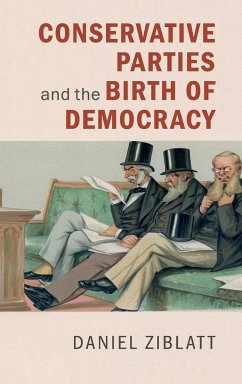
The Birth of a New Europe
State and Society in the Nineteenth Century

PAYBACK Punkte
30 °P sammeln!
Between the conclusion of the Napoleonic Wars and the outbreak of the First World War, Europe underwent a transformation unparalleled in its history. No comparable degree of change had occurred on the Continent since the New Stone Age. Theodore Hamerow examines the innovations that challenged nineteenth-century Europe, using a perspective that transcends events that occurred within national boundaries. He brings together political, social, diplomatic, and national developments to demonstrate how they relate to the profound transformations brought about by the industrial revolution. Using a wea...
Between the conclusion of the Napoleonic Wars and the outbreak of the First World War, Europe underwent a transformation unparalleled in its history. No comparable degree of change had occurred on the Continent since the New Stone Age. Theodore Hamerow examines the innovations that challenged nineteenth-century Europe, using a perspective that transcends events that occurred within national boundaries. He brings together political, social, diplomatic, and national developments to demonstrate how they relate to the profound transformations brought about by the industrial revolution. Using a wealth of statistics and other documentation to buttress insightful generalizations, Hamerow broadly appraises the implications of the shift in Europe from an agricultural to an industrial society. Among the subjects he considers are the rise of the middle and working classes, the spread of literacy and the enfranchisement of the masses, the growth of urban centers of manufacture and trade, the acquisition of colonies, the spread of military technologies, and the changes in the functions of governments.













